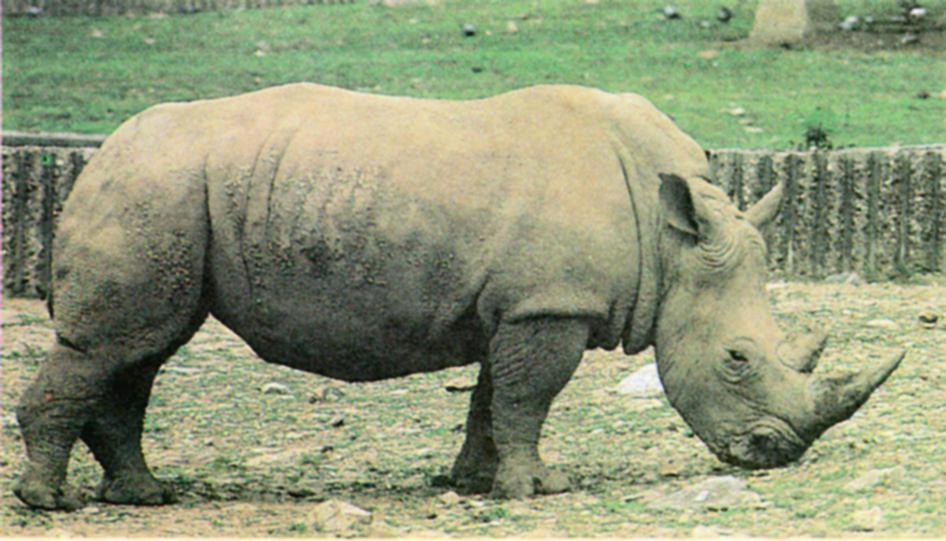 white rhinoceros some life highlights
white rhinoceros some life highlightswhite rhinoceros is not actually white, but light grey. The name was derived from the Afrikaans word wyt, so perhaps it would more properly be called "square-lipped rhinoceros: because wyt refers to the wide, square muzzle that is so well suited to grazing on grass, the abundant food in its grassland habitat. The white rhinoceros once occurred extensively south of the Sahara. The northern subspecies is close to extinction. The southern subspecies came close to extinction in the late-1800s but it responded to conservation measures and populations have increased greatly. The two horns are positioned one behind the other and its thick hide is relatively smooth. Horns are made of compressed hair. Like most rhinoceroses, the young are quite hairy but adults are hairless except for their ear rims, tail tip and eyelashes. White Rhinoceros or Square-lipped rhinoceros (Ceratotherium simum) is one of the five species of rhinoceros that still exist and is one of the few megafaunal species left. It has a wide mouth used for grazing and is the most social of all rhino species. This suggests the origin of the word was before codification by Dutch writers. A review of Dutch and Afrikaans literature about the rhinoceros has failed to produce any evidence that the word wijd was ever used to describe the rhino outside of oral use. Other popular theories suggest the name comes from its wide appearance throughout Africa, its color due to wallowing in calcerous soil or bird droppings or because of the lighter colour of its horn. An alternative common name for the White Rhinoceros, more accurate but rarely used, is the square-lipped rhinoceros. the last offspring came to the world in 2000, the zoo management decided to stimulate the Rhino's sexual appetite by putting them back into their natural habitat. The agreement with Kenya government expects the Rhinos never to be returned to the Czech Republic. Reportedly they are supposed to be heavily guarded to ensure, that they won't be killed by poachers. The Northern White Rhino (Ceratotherium simum) formerly ranged over parts of north-western Uganda, southern Chad, south-western Sudan, the eastern part of Central African Republic, and north-eastern Democratic Republic of the Congo. Poachers reduced their population from 500 to 15 in the 1970s and 1980s. From the early 1990s through mid 2003, the population recovered to more than 32 animals. Surveys in 2000 indicated that the population had started recovering, with 30 animals confirmed in 2000, and possibly six others Since mid 2003, poaching had intensified and reduced the wild population to only 5 to 10 animals (7 actual count worldwide).





